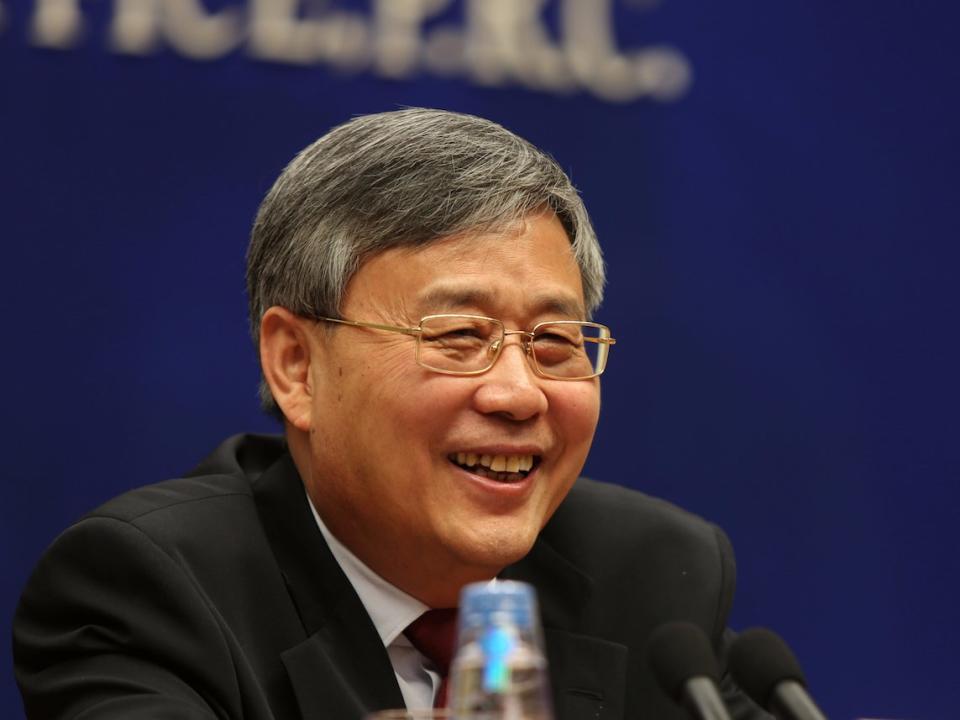A crackdown on China's £7.3 trillion 'shadow banking' industry is rattling markets

Reuters / Shu Zhang
LONDON — A crackdown on China's "shadow banking" industry is rattling share prices and bond markets, according to a Financial Times report.
Shadow banking is broadly defined as financial activities such as lending that are conducted in unregulated conditions, and it's a massive deal in China: Business expanded to about £7.33 trillion ($9.4 trillion) a year in China last year, according to the ratings agency Moody's.
But the practice exposes the country's economy to a huge amount of financial risk, and it has come under much more scrutiny from China's newly appointed banking regulator, Guo Shuqing, who has signalled his intention curb off-sheet lending.
Since his appointment in February, he has introduced rules to discourage banks from using borrowed money to invest in bonds, which in turn has pushed bond yields to two-year highs and wiped £29.5 billion ($38 billion) from the share prices of Chinese banks.
Moody's downgraded China's sovereign ratings last week, saying it expected the world's second-largest economy to erode as its debt rises and growth slows — and the problem of shadow banking was cited as a specific problem.
"If in the future China's structural reforms can prevent its leverage from rising more effectively without increasing risks in the banking and shadow banking sector, then it will have a positive impact on China's rating," Li Xiujun, the vice president of credit strategy and standards at the ratings agency, said.
NOW WATCH: Buying Tesla stock is like buying a call option on Elon Musk
See Also:
SEE ALSO: Why China may be headed for a massive bank bailout

 Yahoo Finance
Yahoo Finance 
